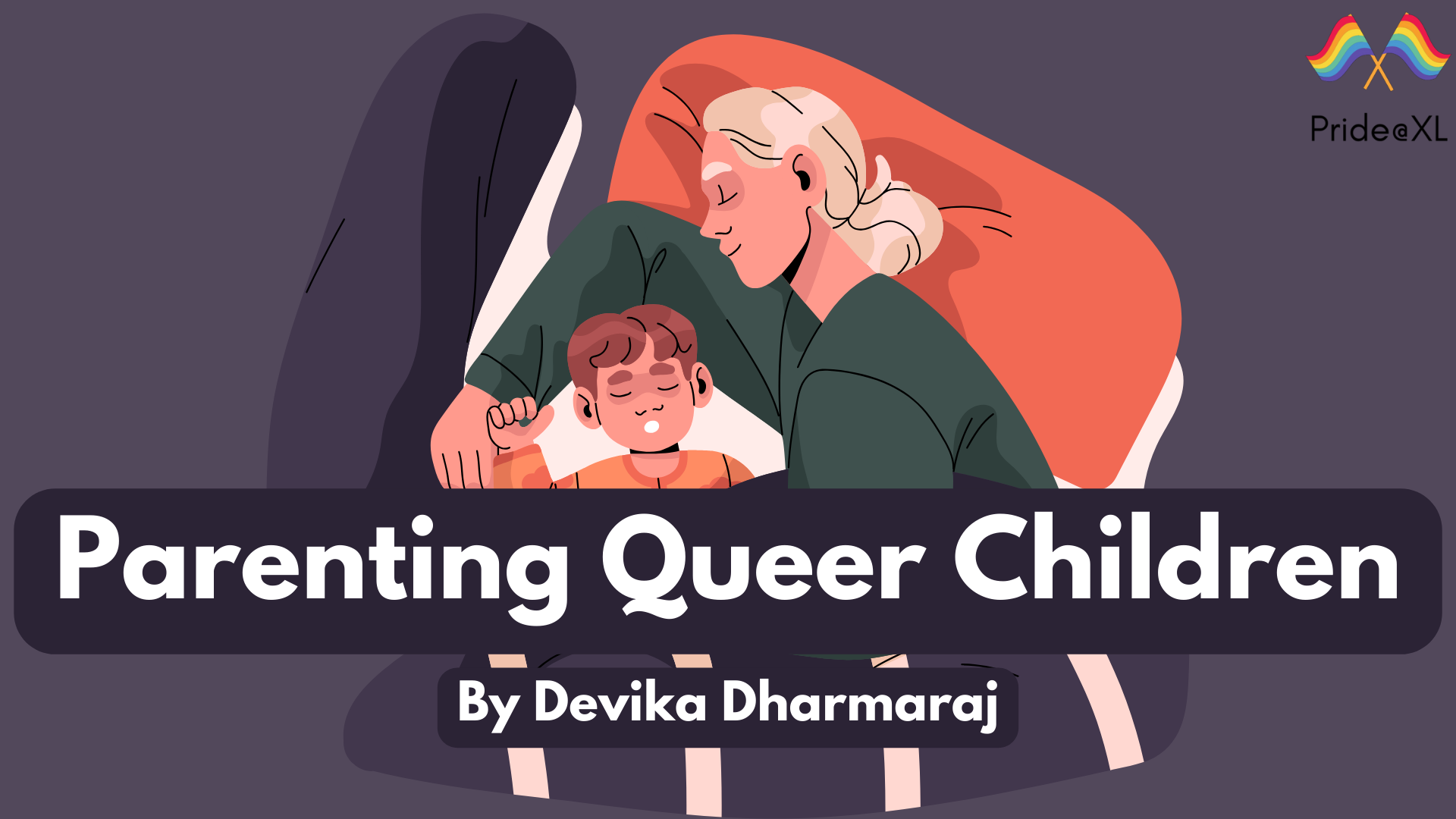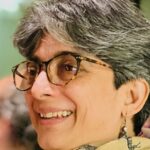
Our son came out to us when he was 14. His sister was the backup team and stood by him while he talked to us as if to protect him if we were to turn out to be non-supportive. His own personal army and cheerleader. He asked for a family meeting and told us he had something important to tell us. And without any frills “I wanted to tell you both that I’m gay”. No idea what he was expecting us to say but we were thankfully in sync with each other and just said that it made no difference to us, we loved him anyway.
However, that evening I was full of such mixed feelings – glad that he trusted us enough to tell us (although apparently his entire school knew before we did!!), worried about our country’s social biases and (at that time) idiotic Section 377 would affect him, some amount of helplessness too. Parenting comes with its own set of worries and fears, but there’s a specific set of concerns that accompany being a parent of a queer child. Still, it all seemed a long way off and his sunny temperament made it easy for us to ask him silly questions like ‘you’re only 14, how do you know?’ Completely stumped by his response ‘Just like how do you know that you are heterosexual?’
Now that we are ten years down the line, it seems like he made it easy for us to examine our own thoughts, beliefs, and unconscious biases. Since both of us parents are in the corporate world, we started to realize how little we know and how little organizations do to support the queer community. I work in the area of mental health now and I can see so many areas where social and community pressures can result in poor mental health.
We debated on whether the grandparents needed to know. Really no need to talk about grandchildren’s sexual orientations was what I felt. I mean, if we ‘flipped it to test it’ (reverse the scenario to assess for bias), we would not talk about it if they were heterosexual so why bring it up at all? However, when my mum (who was nearly 80 then) kept asking about their love life or referring to romance for them, it was an opportunity to educate her. To her credit, she was up for a discussion and although I got asked several times what could have happened to ‘make’ him this way, she seems to have got the biology of it now!
On the other hand, my mother-in-law (~90+ years) listened in silence and all she said was ‘If he is happy, then that is all that matters – and it never got mentioned again. This unconditional acceptance is something I constantly am striving for in many areas and is what we need to demonstrate to our children regardless of orientation or gender.
Last year, our older child sat us down for a ‘talk’. This time their brother switched roles and was the backup team. We should have been pros by now, but the talk blew our minds. They are non-binary. While we were pretty clued in on the sexuality spectrum, the gender spectrum was something we had not really thought much about. So much to learn and so much to understand. I can only imagine the dysphoria for someone who has been a girl and believed she was a girl to find that they are not. But not a boy either! There have been mental health struggles that may or may not be caused by this dysphoria but it was certainly aggravated as a result. Depression and personality disorder along with the acute anxiety of social expectations and the unending questions from those who did not accept them as they are, gave them a very difficult time while they were trying to get a handle on their own identity. Being somewhere on the spectrum is probably the definition of being non-binary; are we okay with it? Really doesn’t matter as long as they are okay with it.
For me, the hardest part has been the grammar! Changing our vocabulary from ‘daughter’ to ‘child’ has been tough enough without the added they/them complication to the language.
Explaining that they are coming with us means singular and not many people coming with
Many eye rolls and exasperated sighs from friends of our generation!
‘Who? Oh, she!’
‘no, they..’
‘Uff!’
I am writing this from Montreal, Canada where we are visiting with our son. He has found his tribe. A city where being part of the queer community is so normal, it need not be shouted out loud. Where, if I ask him whether he has found someone special, he need not answer as he did five years ago in India – ‘ma! Just because I am out it doesn’t mean others are out. Even if I like someone, I have no idea if that person would be queer or straight; and it is too big a risk to ask. So no, I have near zero chances of finding someone here’ It was one of those parental heartache moments. I am sad that he has had to leave the country to find a place where he can be truly himself and happy. I can see that our other queer child too may look to other shores to find happiness. We need to work harder to make our country safe for everyone to find acceptance and love.
In the past few months, we have joined Sweekar the Rainbow Parents – a support group for parents of queer kids. There are not many of us. It has been shocking to learn that so many young people (and many older ones too) receive no support from parents or relatives for their orientation. I wish that other parents could reach out and seek help to understand their own social biases. Our children have so much to teach us. We have such a long way to go and it is only when we all join hands that we can change mindsets, legislations, and social norms so that there is fairness and equity in our world.
https://www.facebook.com/SweekarTheRainbowParents/

Name: Devika Dharmaraj (She/Her)
Bio: 30+ years in HR. Currently working on raising awareness around mental health. XLRI batch of 1992. Lives in sunny Chennai with Raj (also XL ’92).
Contact: devika.dharmaraj@gmail.com
Social media: https://www.linkedin.com/in/
